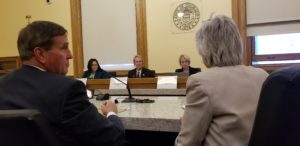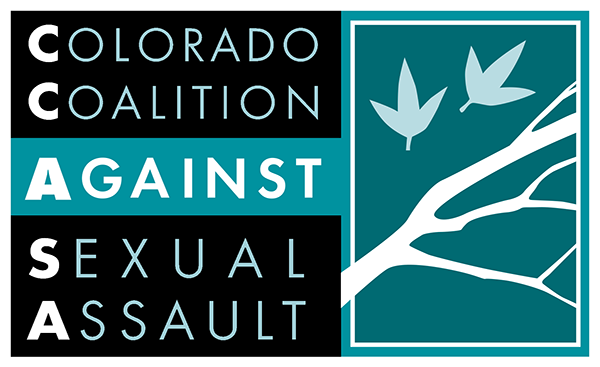
Submitted to CO Senate Judiciary, February 5, 2020
Senator Cooke Opening Remarks re: SB 20-102 Patient Notification Policy
As you may remember, colleagues, from our discussion last year when DORA presented their 2018 Sunset Review Report of the Medical Practice Act, I raised several concerns about the “categorization” or possible “mis-categorization” of sex offenses documented. The report revealed 88 total complaints of sexual misconduct filed with the Colorado Medical Board over a 5-year period between 2012-2017 and also, included a statement which read, “if a physician sexually assaulted a patient while he or she was providing medical care, such conduct would be considered substandard practice.” The report went on to cite 5,323 total complaints of substandard practice from the same time period.
During the testimony phase of the hearing, it was explained by Karen McGovern, Deputy Director of the Division of Professions and Occupations within DORA, that any complaint categorized as sexual misconduct in the Sunset Review report was actually reflective of conduct by a physician that met the criminal definition of sexual assault. She added, in her words, “there are other kinds of sexual boundary violations that may not rise to the level of a criminal sexual assault and those would fall under substandard practice.” If this explanation is in fact accurate, it means that over a 5-year period there were 88 complaints against physicians in Colorado that met the criminal definition of sexual assaulting patients seeking care. It also means that of the 5,323 total complaints of substandard practice, we have no idea how many of those complaints presented a factual basis of sexual misconduct or some kind of sexual boundary violation.
Colleagues, this is unacceptable in our state.
Sexual abuse at the hands of a medical provider is a serious concern for me, and I’m proud to join Senator Ginal in building upon the good work of this committee who last year amended SB 19-193 to find a workable solution forward that balanced due process rights with our greatest duty, to protect the health and safety of the public. SB 20-102 adds in this effort by requiring sexually abusive medical providers to disclose any conviction of a sex offense or any final disciplinary action taken by the licensing Board when the discipline is based in whole or in part on the provider’s sexual misconduct. As we learned from the Sunset Review hearing of the Medical Practice Act, accurate records of sexual abuse complaints against medical providers are not always easily accessible to patients. SB 20-102 shifts the burden from patients to sexually abusive medical providers by removing the obstacle of seeking out hard-to-find information and instead, places the responsibility on the disciplined provider to alert patients of their behavior and terms of discipline.
Colleagues, I think we’ve got a good bill before us and I hope you will join me in voting to support it.
###
Senator Ginal Opening Remarks re: SB 20-102 Patient Notification Policy
As you all know, last year Chairman Lee and I carried SB 19-193 which continued the Colorado Medical Practice Act. Through the Sunset Review process, the Colorado Department of Regulatory Agencies (DORA), completed the Act’s evaluation and made several recommendations related to statutory changes for this body to consider. Among those recommendations, one was designed specifically to increase patient safety by giving the Medical Board more latitude to address sexually abusive physicians.
While certainly, Senator Lee and I are supportive of accountability measures to increase patient safety, we agreed – as did this committee – that the recommendation offered by DORA in the 2019 Sunset Review hearing was not the right solution to adequately address the problem of sexually abusive physicians. Put plainly, we believed Recommendation #2 of the report which would have authorized the Board to discipline a licensee based on an accusation of criminal conduct – not a conviction – would have denied a physician the due process rights they’re entitled to as a matter of law. From this unanimous agreement between both the bill sponsors and members of this Senate Judiciary Committee, the original draft bill developed from the Sunset Review report was amended to remove Recommendation #2.
My feeling is that we made the right decision last year by eliminating a provision that would deny any accused physician of their due process rights. That being said, I made the commitment after that committee hearing to learn more about the problem of medical providers who exploit the illusion of trust that comes with their profession and position of power, to intimidate and coerce their patients to engage in unwanted sexual activity. What I’ve learned over this last year from the collaboration between victim advocates, survivors of medical sexual abuse, and medical providers is that only a small percentage of medical professionals engage in sexual misconduct with their patients. However, those that do often have multiple victims over the course of many years. Take for example the case of a physician in Colorado who in 2019 was charged with knowingly transporting child pornography in interstate commerce, including repeatedly posting child pornography on Tumblr accounts after videotaping naked boys during physical exams; the U.S. Indian Health Service pediatrician who, over the course of 2-decades, was transferred from reservation to reservation and allowed to continue to treat children throughout the United States West after being disciplined multiple times for sexually abusing young Native American boys; and perhaps one of the most recognizable cases of our day, the osteopathic physician at Michigan State University and doctor to the USA gymnastics national team, Dr. Larry Nassar, who was charged with molesting 265 girls and young women under the guise that he was providing legitimate medical treatment, dating as far back as 1992.
I believe SB 20-102 Concerning Required Disclosures to Patients Regarding Formal Actions Based on Sexual Misconduct, addresses the issue of sexually abusive medical professionals and provides a more just and more comprehensive way of solving the problem DORA presented to us last year. SB 20-102 requires any medical provider who has been disciplined for a conviction or credible finding of sexual misconduct to participate in a proactive, patient notification process throughout the period of time for which they are disciplined on probation.
This bill enhances public safety, affirms accountability, has the power to prevent future instances of sexual violence, without violating a medical providers due process rights, and gives health care consumers all the information they need to make safe choices about how they and their families receive quality health care.
I hope you will join Senator Cooke and I in supporting this sound policy, and am available for any questions the committee may have.
###

